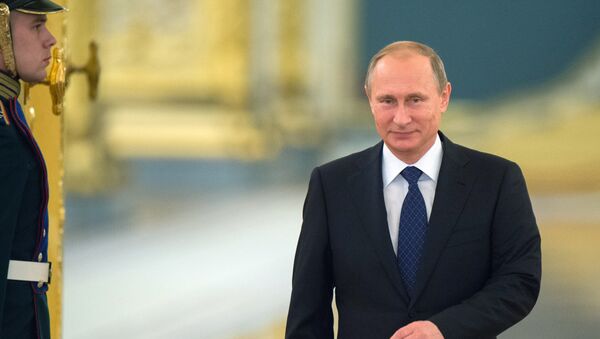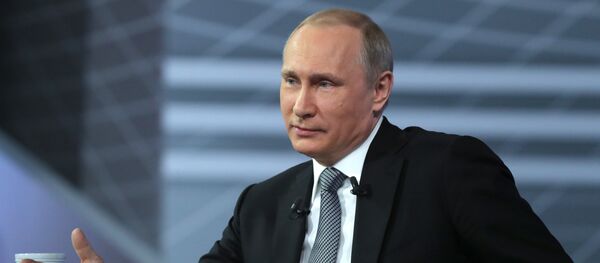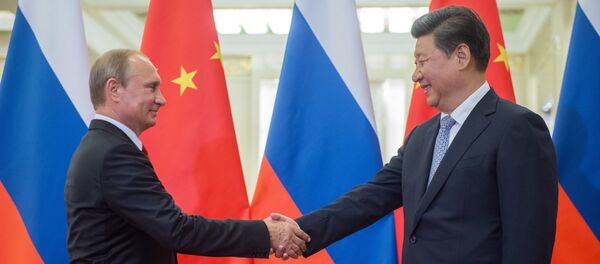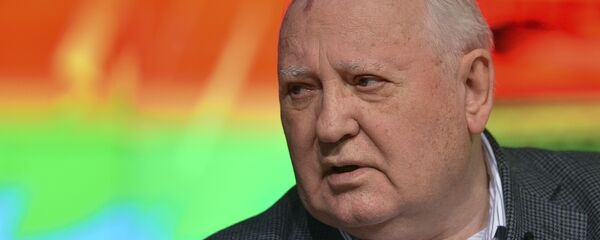To ensure the country's security in the face of today's threats, Putin rehabilitated and modernized the Russian armed forces, making the Army agile, flexible and capable of dealing with whatever comes.
Under Putin, Russia continues to conduct its famous space program. Furthermore, the Russian space taxi still carries American astronauts into space, while Russia's powerful and reliable RD-180 engines remain indispensable for the Pentagon's Atlas V rockets.
At the same time, the Kremlin's pushback against NATO's expansion and regime change spree is hardly surprising: it is a "predictable, if not understandable," reaction, the intelligence officer notes.
However, what might really puzzle an independent observer is why the West is aggravating further tensions with Russia amid the Daesh blitzkrieg and ongoing refugee crisis in Europe.
Make no mistake: it is Russia who dealt a heavy blow to Daesh in Syria by cutting off its supply routes and upsetting the applecart of Recep Tayyip Erdogan's illicit oil business with terrorists.
"The Russian president recently exposed Turkey, too, as NATO's Achilles' heel, a terrorist fifth column between East and West. NATO turned a blind eye to the Erdogan-Baghdadi oil cartel until the Russian Air Force began destroying northbound convoys," Donovan stresses, adding that in contrast to the European and American establishment, Vladimir Putin has no illusions about Islamism, fascism and radical extremism.
What lies at the root of Russia's conventional wisdom?
The crux of the matter is that the Russians "never forget" the lessons of the past. They remember how their grandparents fought in the Second World War and what price Russia paid for the victory over Nazism and for the liberation of Europe. Indeed, the Russians sacrificed the most among the other anti-Hitler coalition members to defeat Nazi Germany.
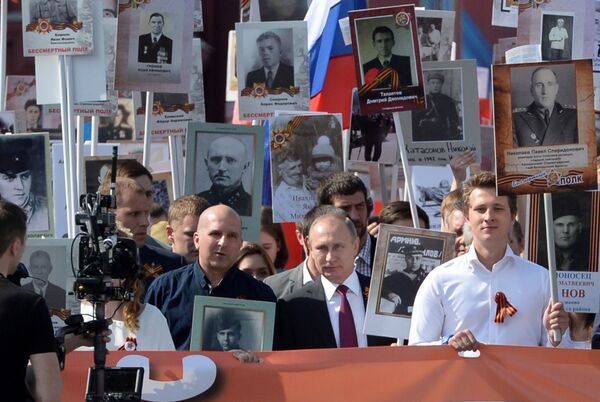
"Victory Day, celebrating Soviet success in World War II, has become the most significant holiday on the Russian calendar under Putin. Unlike America and Europe, victory, success, and the need to oppose fascism, including the religious variety, are mainstays of contemporary Russian vigilance," Donovan underscores.
And what about US President Barack Obama?
"While the Russian president cultivates "a never forget" ethic, the American president seems to never remember," the intelligence officer writes, referring to Obama's refusal to attend the Victory Day celebrations in Russia.
It seems that the American and European establishment don't fully realize who their real enemy is, Donovan emphasizes: they are imposing economic sanctions on Russia and beefing up NATO's military presence on its borders, while flirting with absolutist and Daesh-loving Ankara and turning a blind eye to decades-long fuelling of Islamist Frankenstein by generous Gulf donors.
Putin's Russia is the West's most obvious ally in the war against terrorism.
Donovan warns: "Time is not a European or American ally when conflict is a war of a thousand cuts."
"Russia may have to rescue Europe from itself again in the 21st Century," he stresses.
